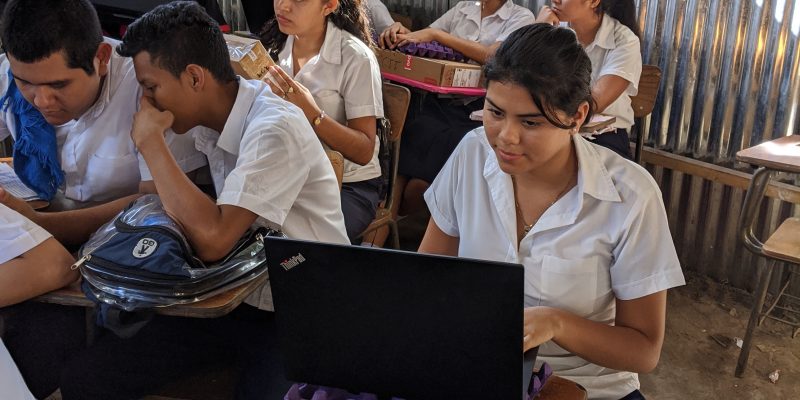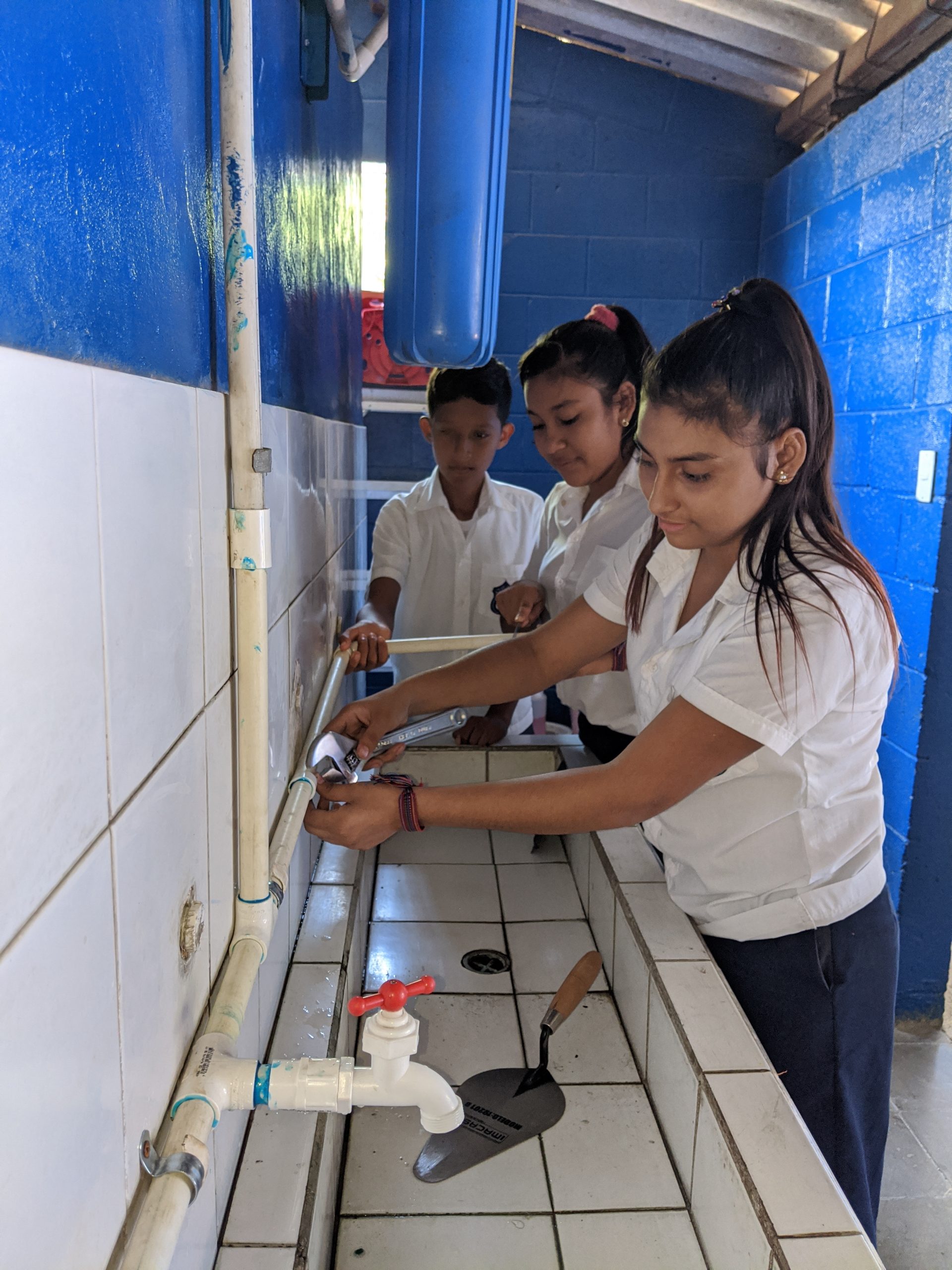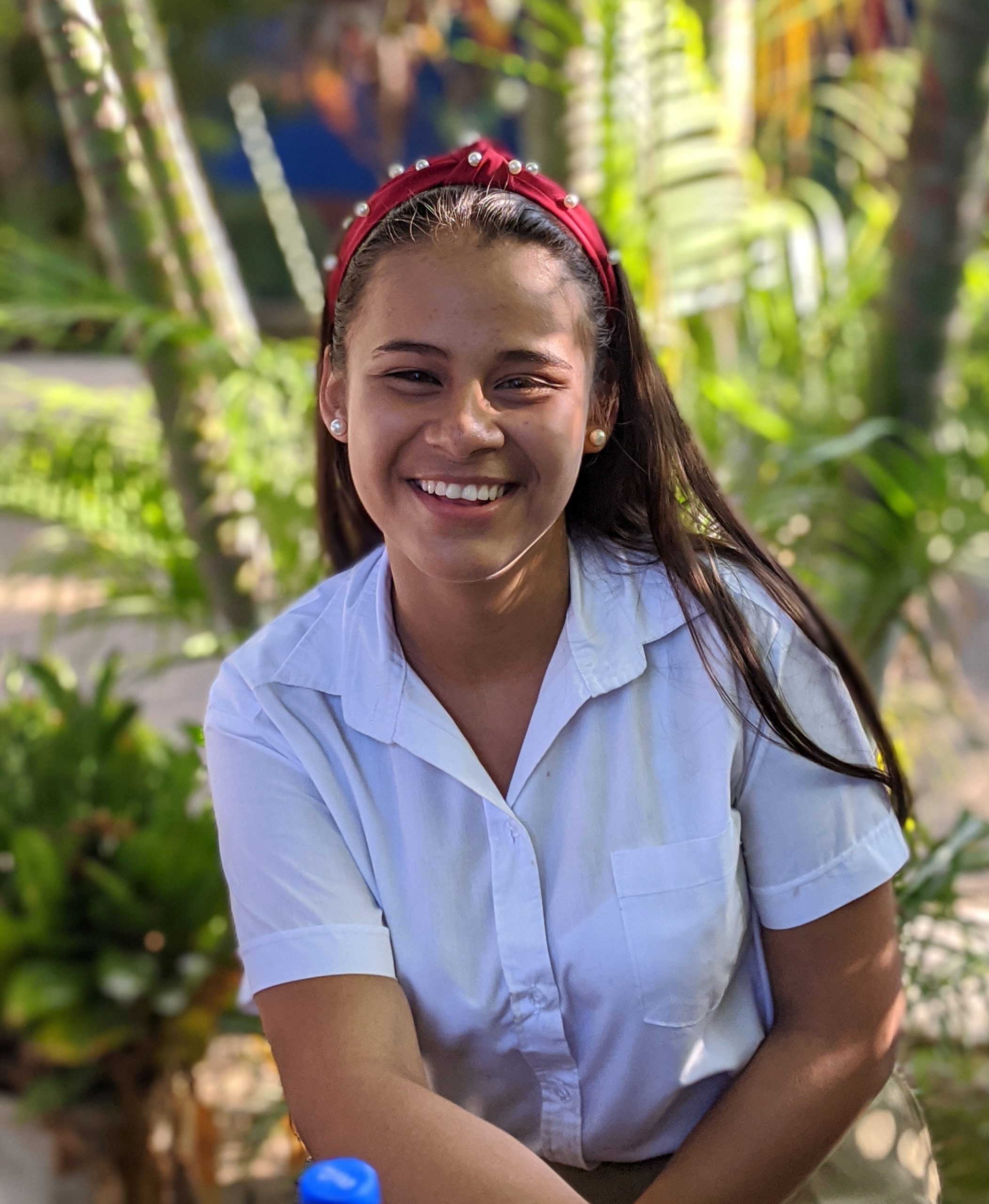
MCA-El Salvador
Ninth grade student Tania Michelle Hernández (center right) attends a secondary education technical program in Industry with a concentration in Electricity at the San Luis Talpa School in La Libertad, El Salvador.
MCC’s $277 million El Salvador Investment Compact has sought to increase the country’s productivity and competitiveness in international markets. At the same time, an important component of the compact’s Human Capital Project has worked to remove educational barriers to gender equality through a holistic approach.
Under the Project, schools launched new technical programs for secondary students designed to develop skills that will allow them to succeed when they enter the country’s job market, giving them access to higher-paying careers.
But adding technical programs without addressing entrenched biases that prevent women from fully participating in the economy would still leave half of the country’s citizens behind, so the Project also made significant efforts to increase gender equality in these programs, encouraging girls’ enrollment in areas that are traditionally male-dominated, such as electrical maintenance or vehicle service.

Daniela Alejandra Rubio, eighth grade student from Belen Villa Palestina Educational Center practices plumbing as part of the extended day workshops funded by MCC.
MCC supported the development of the Ministry of Education’s Gender Policy and the establishment of its Gender Unit, which carried out activities to improve gender equality in El Salvador’s education system. An important first step was providing training to more than 1,500 teachers and principals, 10,000 students, 5,500 student families, and over 100 staff from the Ministry of Education to improve gender equality within classrooms and schools.
“After the training,” said school principal Nelson Agustín Guzmán, “I have noticed that there is more respect for the opinions that both men and women teachers express…[the training] has also changed cultural patterns…today there are fathers who help out at home and respect their wives because of the trainings that staff, students, and student families received as part of this program to improve gender equality for this generation.”

Tatiana Martínez, ninth grade student at the San Antonio Educational Center in El Salvador.
Through the student-centered activities, students reinforced gender concepts and girls were able to strengthen their leadership skills and become more empowered. Students decided how to demonstrate what they were learning, either through sporting events, writing, or musical and art projects.
MCC is proud to support the Women’s Global Development and Prosperity Initiative (W-GDP), a whole-of-government effort to advance global women’s economic empowerment. In El Salvador and around the world, MCC works to economically empower women by giving them the tools to succeed and break down barriers—both formal and informal—that are holding them back. Studies show that when incomes for women increase, they invest those gains back into their families and communities. For MCC, investing in Salvadoran girls and women is a strategic effort towards achieving our mission to reduce poverty through economic growth, and a smart investment in the future of the country.

